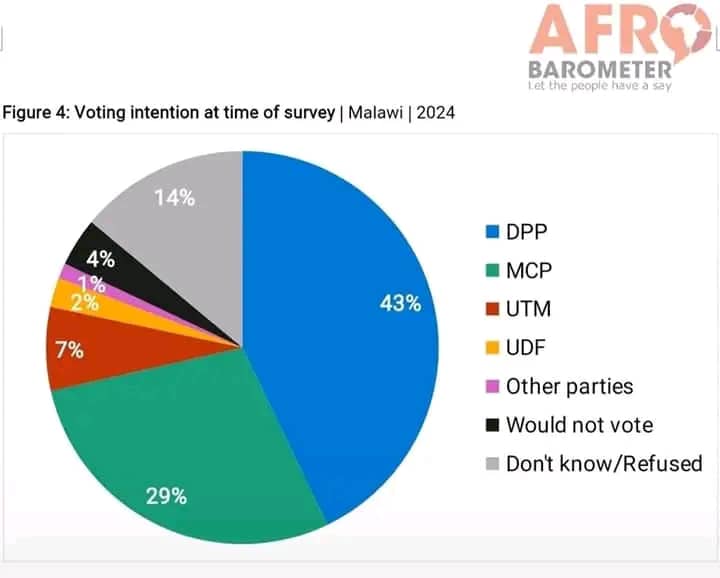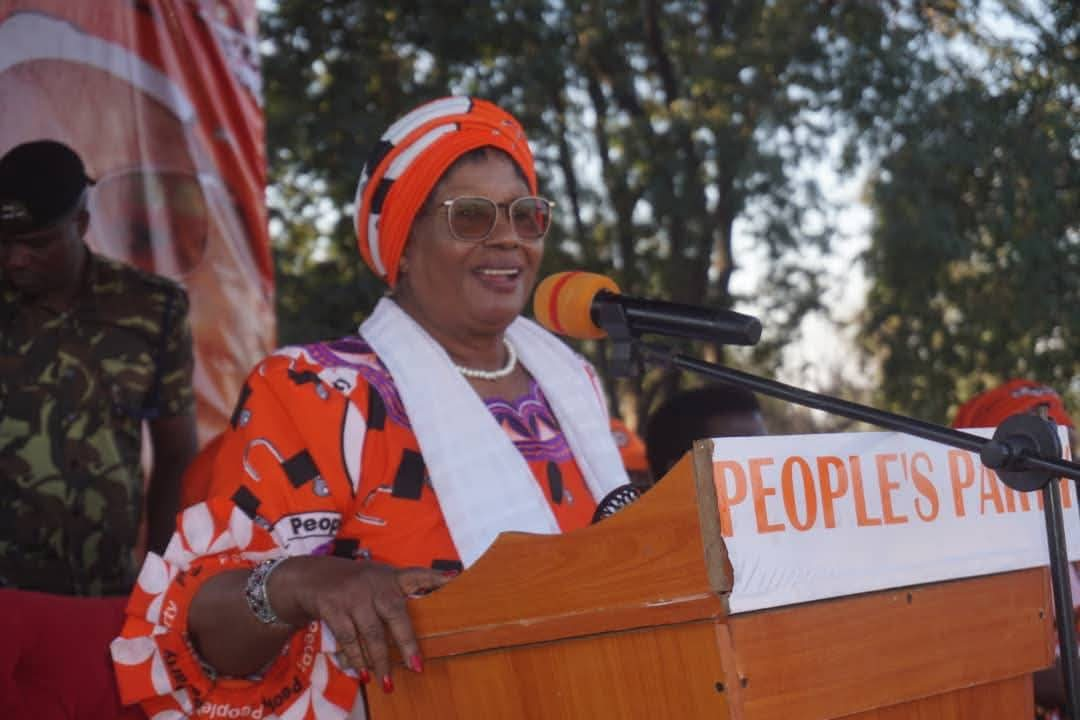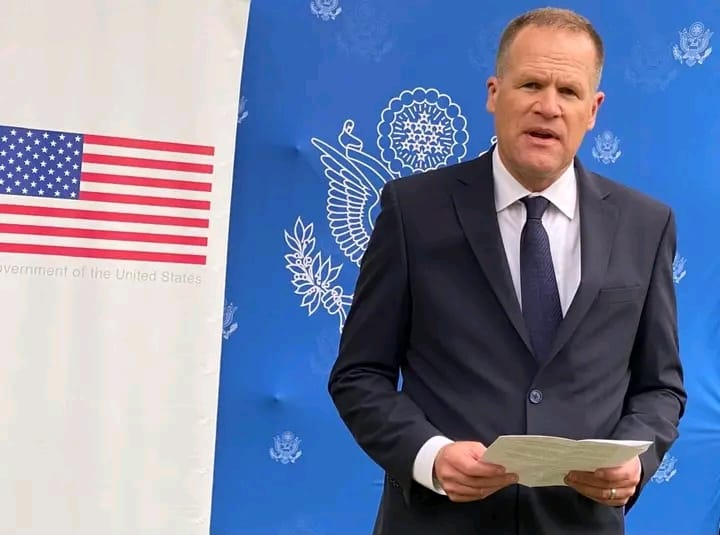By Burnett Munthali
The recent Afrobarometer survey has laid bare the shifting political dynamics in Malawi, painting a picture of rising opposition strength and a ruling party grappling with waning public confidence. With former President Arthur Peter Mutharika (APM) and his Democratic Progressive Party (DPP) leading with 43% of voter support against the ruling Malawi Congress Party’s (MCP) 29%, the survey has reignited debates about leadership, governance, and public trust in the country.
The DPP’s strong lead in the survey reflects a growing appetite for change among Malawians. APM’s leadership, which was previously scrutinized for alleged governance lapses, now appears to benefit from a perceived sense of stability and competence during his tenure compared to the current administration. The DPP’s resurgence suggests that many Malawians see the party as a viable alternative amid economic hardships and governance challenges under President Lazarus Chakwera’s administration.
Key to this resurgence is the party’s ability to consolidate its base and project itself as the champion of change. However, the DPP must tread carefully, as its past governance record still lingers in public memory. To sustain this momentum, the party will need to demonstrate a clear vision for addressing the country’s socio-economic challenges while distancing itself from previous controversies.
The survey’s findings of 29% support for the MCP highlight a significant decline in the ruling party’s popularity. This is unsurprising given the public’s mounting frustrations over corruption, economic mismanagement, and unfulfilled campaign promises.
The perception of corruption within the Office of the President—where 38% of respondents believe senior officials are involved in malpractice—is particularly damaging. This sentiment is compounded by the revelation that 44% of respondents view the Malawi Police Service as the most corrupt institution. These findings underscore a broader crisis of trust in state institutions, which has undoubtedly eroded confidence in the Chakwera administration.
The MCP now faces an uphill battle to rebuild its image and reconnect with the electorate. This will require tangible progress on anti-corruption measures, economic reforms, and improved service delivery to counter the growing narrative of disillusionment.
The survey’s focus on corruption sheds light on one of the most critical issues influencing voter sentiment. The identification of the Malawi Police Service and the Office of the President as the most corrupt entities signals a broader public outcry against systemic failures.
For both the DPP and the MCP, addressing corruption will be pivotal. The DPP’s ability to position itself as a reformist party, despite its own past controversies, could determine its success. Conversely, the MCP’s efforts to restore public trust through transparency and accountability will be essential for its survival in the political arena.
With the DPP leading in the survey, the political landscape heading into the 2025 elections appears highly competitive. However, it is essential to note that opinion polls provide a snapshot of public sentiment at a particular moment and do not guarantee electoral outcomes.
The Afrobarometer results highlight a clear demand for leadership that addresses corruption, revitalizes the economy, and delivers on promises. The party that can effectively articulate and implement a vision for tackling these issues is likely to win the trust of voters.
The Afrobarometer survey has set the stage for what promises to be a highly contested election in 2025. For the DPP, it signals an opportunity to reclaim power, while for the MCP, it serves as a wake-up call to address the pressing concerns of Malawians.
Ultimately, the battle for the presidency will hinge on who can best address the public’s growing frustrations, restore trust in government institutions, and provide a clear path toward economic recovery and social justice.




